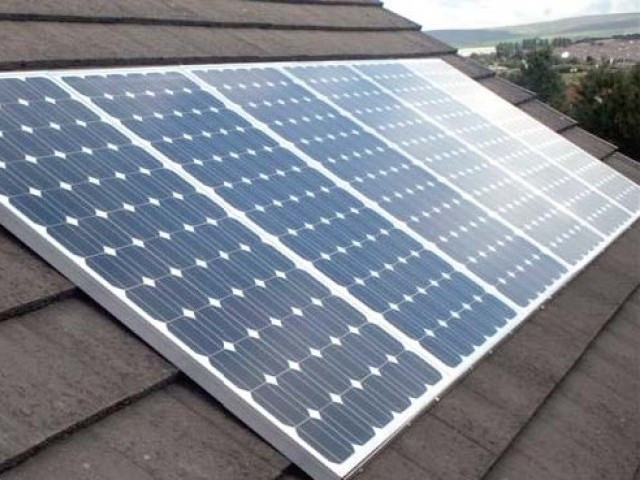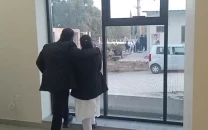K-P's solar dream fades in the light of reality
Experts believe the province lacks the infrastructure necessary to shift to solar power

As the world moves away from using fossil fuels for the generation of electricity, the Khyber-Pakhtunkhwa (K-P) government too has announced its decision to provide free or subsidized solar energy systems to over 130,000 families across the province. However, critics argue that the existing infrastructure is unequipped to handle the sudden shift to solar power.
According to government figures, 32,500 households have been selected in the first phase of the project costing Rs20 billion. Over 2.5 million citizens reportedly applied online; an overwhelming response that reflects both the acute energy crisis in K-P and the desperation of residents living under chronic load shedding and erratic power supply. Despite the scale and cost, details around beneficiary selection, contract awarding, and post-installation support remain frustratingly opaque.
An official from the Pakhtunkhwa Energy Development Organization (PEDO), speaking on the condition of anonymity, admitted that many logistical and technical elements were still being "worked out," raising doubts about the readiness of the project. "We're still finalizing several implementation phases and vendor alignments," he said, without elaborating further. This lack of preparedness is concerning given the ambitious scope and the financial burden on an already cash-strapped provincial government.
In public announcements, K-P's finance adviser Muzzamil Aslam hailed the project as a "first-of-its-kind" effort to deliver free electricity to households. He further claimed that solarizing homes, schools, and religious institutions will help relieve the national grid and generate significant savings.
However, critics argue that the numbers being touted do not align with the realities on the ground. The solarization of 1,100 schools in the merged tribal districts includes those that already had solar panels but are now being upgraded. A PEDO report confirms that only 342 schools have completed installations to date, despite funding approvals exceeding Rs1.1 billion. Annual revenue projections of Rs170 million remain theoretical, not backed by independent audits or third-party validation.
Similarly, the solarization of 2,000 mosques under another high-profile scheme is presented as a game-changer, with a claimed cost-saving of Rs75 million annually. Yet, critics argue that targeting religious institutions may be politically motivated, especially with local elections looming. Priority lists for eligible mosques and madrassas are being generated by "competent authorities," but the lack of transparency over how these lists are formed raises questions about favoritism and political patronage.
According to Dr Kaleem Ullah, Associate Professor at the US-Pakistan Center for Advanced Studies in Energy (USPCAS-E) at the University of Engineering and Technology (UET), solar energy not only eases the burden on consumers but also reduces dependency on conventional power sources like coal, which currently accounts for 64 per cent of our power generation hence this shift could lead to significant savings for the national exchequer.
"However, there is a critical gap in the current infrastructure. Despite the growing momentum in solar adoption across departments and institutions, we lack adequate power storage facilities at grid stations. There is an urgent need to establish storage systems to harness and manage solar power effectively," he stressed.
In Torghar, a relatively underdeveloped district, the government has promised to solarize 154 religious and community sites and over 3,200 houses. Yet, locals say there's been little outreach or clarity on who qualifies and what the timelines are.
The government claims it will also solarize 23,000 public buildings across K-P. However, rather than investing in energy audits or comprehensive feasibility studies, officials appear to be taking a blanket approach, relying on private companies to handle procurement and installation. This opens the door for cost inflation, substandard equipment, and even corruptionissues that have plagued past energy projects in Pakistan. With Rs20 billion in play, civil society organizations are calling for stronger oversight.
"There needs to be an independent monitoring body to ensure funds are being used efficiently," said a representative from the K-P Civil Society Network. "We've seen time and again how large-scale projects become political tools rather than genuine public services."



















COMMENTS
Comments are moderated and generally will be posted if they are on-topic and not abusive.
For more information, please see our Comments FAQ